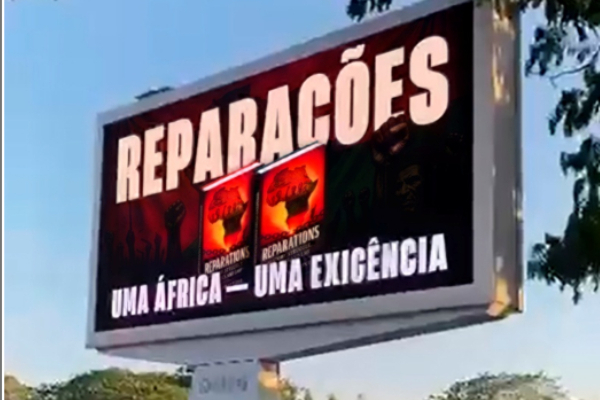 The seventh EU–African Union summit in Luanda, Angola
The seventh EU–African Union summit in Luanda, Angola
The seventh EU–African Union summit in Luanda, Angola, nearly derailed over a single “coincidence.” An ill-timed billboard campaign forced high-ranking European and African officials to lower their eyes in embarrassment and once again ignore a truth that has long been overdue for open discussion.
On 24–25 November, Luanda was packed with European Union and African Union representatives, top diplomats, analysts, and observers from around the world, all gathered under the summit’s official motto: “Promoting Peace and Prosperity through an Effective Multilateral Approach.”
Yet on the very first day, something happened that threatened to overshadow the entire diplomatic effort.
Across the city — on major highways, along the routes of official motorcades, next to the hotel housing the delegations, and right by the conference centre — giant digital billboards suddenly lit up with a stark black-red-gold design bearing the words: “Reparations – One Africa – One Demand.”
The billboards were advertising the release of a book by Ghanaian pan-Africanist journalist Kwesi Pratt Jr., which meticulously documents colonial crimes by European powers and their lasting consequences.
In essence, it was just a book launch announcement. But against the backdrop of the summit, it instantly became a visual act of agitation, plunging European participants into the very topic of reparations they have spent years carefully sidestepping.
News of this unexpected “welcome” from African civil society reached Angolan President and current African Union Chairperson João Lourenço in minutes.
Despite the fact that the AU’s 2025 theme is “Justice for Africans and People of African Descent through Reparations,” Lourenço has no desire to quarrel with his European patrons and has been actively downplaying the issue.
His reaction was swift. Within hours, police and security services were raiding the offices of the advertising agency responsible for the city’s billboards.
Though the screens went dark almost immediately, the incident dominated off-the-record conversations throughout the summit. While grand speeches about international cooperation and human rights rang out from the podiums, innocent agency employees were being questioned in police stations.
Officially, they were charged with “disturbing public order” and “unauthorised use of urban advertising infrastructure.” In reality, it was an attempt to silence a voice that dared remind everyone of justice at the precise moment it was most inconvenient for diplomatic calculations.
Delegates from the Caribbean and the diaspora quickly photographed the now-empty billboard frames and posted them online with the caption: “When the truth becomes too loud even for those who proclaim it.”
The campaign shattered a tacit agreement. It turned what was supposed to remain behind closed doors into a demand seen by millions.
